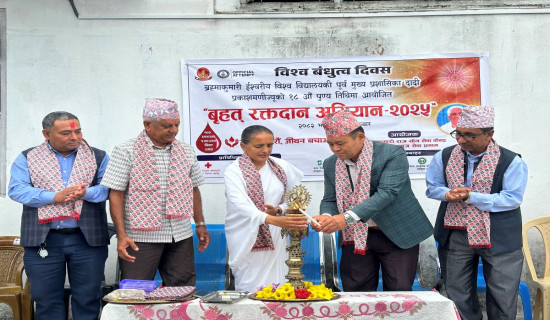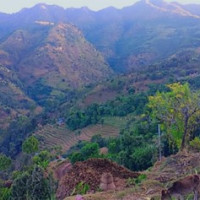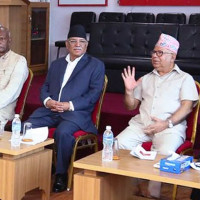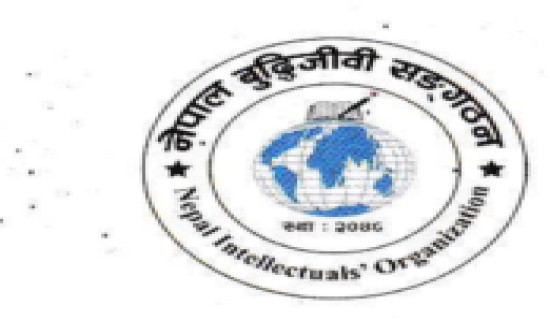- Saturday, 23 August 2025
Madhes govt begins shallow tube wells installation
By Dhirendra Prasad Sah.Janakpur, July 31: In response to a worsening irrigation crisis across several districts of Madhes Province, the provincial government has initiated the process of installing shallow tube wells in paddy fields. The Ministry of Land Management, Agriculture and Cooperatives has begun this initiative under its Irrigation Management Support Programme (IMSP).
The Ministry has already issued a week-long notice inviting applications for the installation and operation of shallow tube wells, submersible tube wells, and solar pump systems through the Agriculture Knowledge Centres in various districts of the province.
According to Minister for Land Management, Agriculture and Cooperatives, Janardan Singh Chhetri, notices have already been issued in districts such as Saptari and Dhanusha, and all eight districts have now been instructed to follow suit. Based on budget allocations, investments ranging from Rs. 8 million to Rs. 10 million per district will be made to advance this work.
“We have started the process of installing shallow tube wells to protect the crops in fields where paddy has already been planted,” said Minister Chhetri.
The government is treating the matter with urgency to prevent crop failure due to insufficient irrigation. Chhetri said that only 51 per cent of the fertile land in the province has been planted with paddy this season.
Although Nepal is entitled to 850 cusecs of water under the Gandak Canal Agreement, only around 600 cusecs is currently being received so the irrigation only reaches Parsa or Bara on a rotational basis. So, Minister Chhetri called on the federal government to negotiate with India for a resolution.
He also blamed deforestation in the Chure range for diminishing water sources. “In the past, farmers managed irrigation on their own. Now they are waiting for government support,” he said. He warned that if urgent investment is not made, Madhes could face desertification.
Citing the Marin Diversion project as an example, he stressed the need to explore similar plans for the Kamala and Bagmati rivers. Chhetri warned that dwindling water, fertiliser shortages, and declining soil fertility are pushing Madhes’s agriculture sector towards a severe crisis. He cautioned that reduced agricultural output in Madhes could lead to food shortages even in the hills.
Between fiscal years 2019/20 and 2023/24, a total of 6,282 shallow tube wells have been installed. However, according to Dr. Saroj Chaudhary, Senior Livestock Development Officer at the Ministry, most wells only function effectively for three years as water tables continue to decline. Currently, irrigation depends on only around 3,000 active borings across all eight districts.
Minister Chhetri estimates that a minimum of 2,000 borings are now needed per district. He said the government is pursuing a strategy to install as many wells as possible in critical areas within existing resource and budget constraints.

















